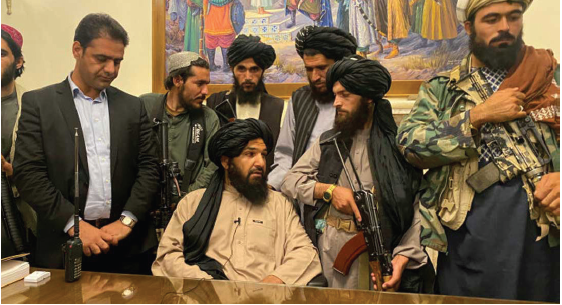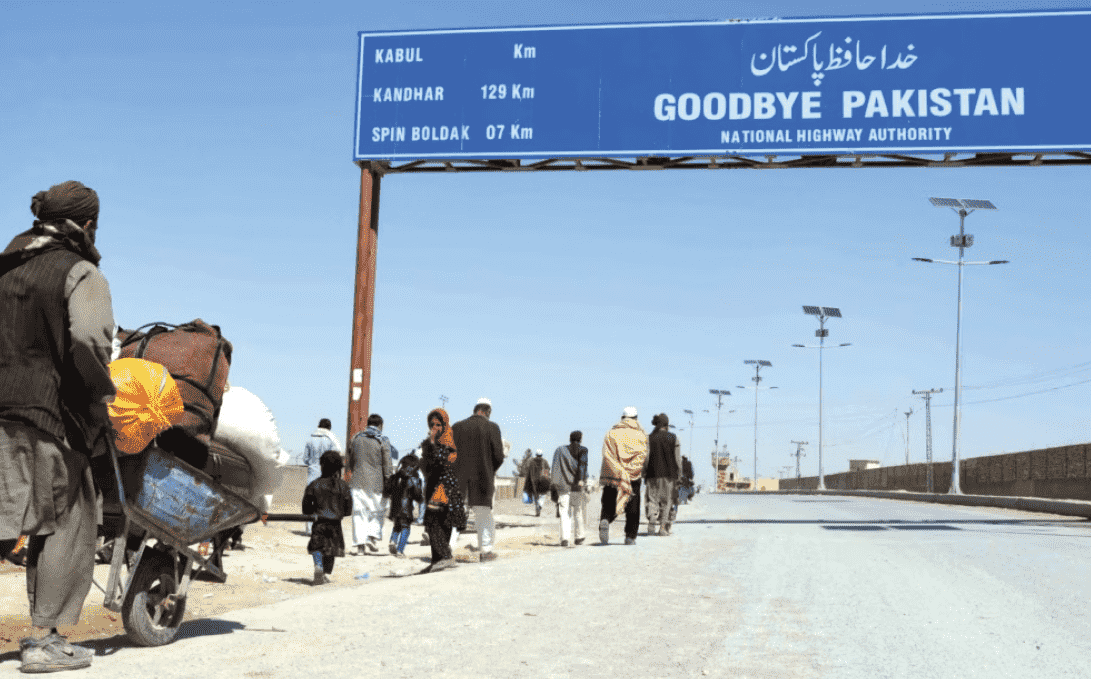Jacques Chirac once said ‘terrorism has become the systematic weapon of a war that knows no border and seldom has a face’. Such incidence is no stranger to Pakistan. Pakistan’s very socio-political fabric has been seeped in turmoil due to insurgent activities by non-state actors who wish to undermine the state’s political writ for their own gains. However, while reasoning with such stateless individuals proves difficult, as they truly lack a face, it is equally unreasonable how a state would refuse to help another state when it comes to investigating these very stateless perpetrators who took civilian lives. Such is the security dilemma that plagues Pakistan and Afghan relations.
Prime Minister Shehbaz Sharif previously called upon Kabul to engage in a joint investigation of the Besham attack whereby Tehreek-i-Taliban Pakistan (TTP) agents claimed the lives of five Chinese engineers and one Pakistani national on March 26th. However, Afghanistan who promised to do so very quickly backtracked on providing assistance in the Besham probe. In a strange twist, it seems that this incident only further cemented animosity Kabul has towards Pakistan and vice versa, given that Afghanistan was quick to blame Pakistan not as a nation seeking ‘security cooperation’ but one who has enabled ‘diplomatic mistrust’ between Afghanistan and China after Pakistan was quick to point out the link between the insurgents and Afghan soil.
It is important to note that Chinese casualties were also an unfortunate outcome, hence attracting the ire of the eastern economic giant. Such course of events may seem petty or even illogical given that eradicating the global menace of terrorism stands true for all, but deeper insight into Pak-Afghan history and barriers that make a potential security nexus possible may help us understand the actions guiding the Besham probe.
Historically, Pakistan’s Afghan policy post 9/11 has done no favours for them. Rather it seems it only worked to solidify Afghan hostility in the long run. It laid the groundwork for new Afghan actors by instilling them with the ideology of jihad. While initially the policies’ very aim was to topple the communist regime in Afghanistan by forcing the Soviets out but years of neglecting these ideological actors after the cold war, only served to create an enigma whose backlash Pakistan still faces today. Now years later those very radical factions have risen to prominence.
Once abandoned with no efforts made to reintegrate them into a moderate civil society, the Afghan Taliban have climbed to become the topdogs of the Afghan nation. Ironically, Pakistan’s oddly high expectation that the Afghan Taliban’s rise to power, the ousting of the US forces,
and the signing of the Doha agreement would give light to a new relationship that would render old mistakes forgotten, proved quite misguided. Furthermore, the very guarantees US spokesperson Vedant Patel had sought from the Afghans were also repeatedly dashed when human rights violations were not curtailed and terrorist safe havens operating on Afghan lands were never addressed. These charges have reverberated multiple times across international forums including SCO meetings. Relations also soured with Pakistan particularly after Kabul failed to tackle these terrorist hideouts on its soil while Pakistan launched airstrikes against targetted militants on the defensive within Afghan soil in a bid to protect its own national security.
Furthermore, Pakistan’s call to expell more than 370,000 undocumented Afghans on the charge that they posed a national threat without giving much time for Kabul to repatriate its nationals was not taken well with the Afghan Taliban. Pakistan has also had reason to be suspicious particularly after alarming claims were made by the Afghan Taliban foreign spokesperson Noorullah Noorani who referred to the ‘Durrand Line’ as an imaginary border. He contested it being the defined border between the two nations. Such rhetoric once again hinges on how the Pak-Afghan border has historically been a sore spot for the Afghans who believe that parts of Balochistan and KPK, also hailed as ‘Pakhtunistan’ by many Afghans, should officially have belonged to them post-partition. Despite parallels between the two nations due to their shared religious affiliation, such statements and incidents do not make cooperation seem a fair likelihood between the two star crossed nations.
However, for Pakistan, the greatest worry are the anti-state militants with links to Afghan soil such as the outlawed TTP members who were found to be behind multiple insurgencies; including the Chinese consulate attack, Pasni-Gwadar convoy bomb attack and the most recent being the Besham attack. As TTP’s notoriety has increased since its inception in 2007, it is interesting to note that security cooperation with the Afghan Taliban has also been abysmal. It’s not strange.

One may give some credit to the Delhi-Kabul joint nexus. However that’s not all, rather it boils down to ideological resonance. It is impossible to expect the Afghan Taliban to destroy the TTP with whom they share ideological parallels. One could consider the TTP to be an ideological offshoot of the Afghan Taliban as both their own goals align with wanting the creation of an Islamic caliphate under the purest form of Shariah. The only difference being the former is in the process of wanting it established in Pakistan while the latter has successfully established one in the neighbouring state. Rather one could claim the TTP enjoys mixed relations with the Afghan Taliban, with the latter neither condemning or eliminating them out rightly, nor accepting them legitimately. It may trickle down to how this arrangement may suit both parties on a global front.
In the aftermath of Besham, Pakistan demanded the Afghan interim government to arrest three alleged terrorists who were found to be repsonsible and linked to the Besham attack namely Qari Abdullah, Bakhtiar Shah, and Khan Lala alongside the TTP chief Noor Wali Mehsud of the outlawed group. Unfortunately, due to Afghan backtracking on the Besham investigation, it is not surpirsing that Pakistani miltary agencies have begun ramping up operations unilaterally and even conducting strikes inside Afghan terrirtory against TTP hideouts even if it does mean violation of borders.
Given the all-weather relationship between Pakistan and China, Kabul’s charges of turning the issue back on Pakistan may not work for them. It makes more sense for them to showcase cooperation, not only as part of Pak-Afghan relations but as part of a wider regional interest. This is because besides warranting continued Chinese investment in Afghanistan, the Central Asian states have also showcased similar concerns regarding Afghan-based terror groups.
Hence, it makes sense for Afghan Taliban to cooperate and create a security space along with Pakistan to counter cross-border terrorism to prevent their own global isolation. While love may have been lost, gaining security support and geniality between the two nations still stands on agenda. Only with ensuring neighbouring defence, cultural, and political cooperation can the stain of star-crossed neighbours be reversed to some degree, if not completely omitted.
The writer is our Editorial Assistant and internal relations, political economy analyst.



